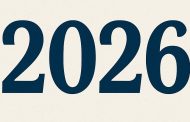The Nigerian Political Science Association is widening the scope of its intervention in the contest of discourses. Aside from its on-going Lecture Series on the 2023 General Elections which ends May 10th, 2023, it has set up an “NPSA Colloquium on Agenda Setting for the Next President of Nigeria”. This too will last three weeks, featuring rising and established political scientists across the country.

All hanging out here
By the title of the engagement, the NPSA has removed itself from the controversy of who won the 2023 (Presidential) election. Instead, its operative word is the ‘next president’, whoever he or she is. Who knows, it is not beyond Nigeria to push aside the quarreling men and invent a woman to take over, using a ‘doctrine of necessity’ or a similar doctrine to justify it.
But, on a serious note, five key themes are dearer to the NPSA as far as presidential power in the next government goes. These are federalism and national unity; democratic consolidation; government – citizen relations; insecurity and external relations. While the gender presence on the list looks impressive – three of them, made up of a senior professor, (UI’s Irene Pogoson), a newer one (UI’s Olubukola Adesina) and a senior lecturer (Taraba State University’s Dr. Talatu Bello), it is not clear why there is no mention of the development model question which has been the site of the most intense contestation since the SAP debate, the students – led anti-SAP riots of 1989 and the unending debate on fuel subsidy. The subsidy issue is likely to be the next clash site, almost irrespective of whoever becomes the president. Or, is it the case that Prof Julius Ihonvbere who has written on political economy will make it the corner stone of his presentation?
Some other critics might wonder if the tribe of Marxists, constructivists (conventional and critical) post-colonialists and sundry other post-positivists are completely absent in NPSA membership except if one takes Prof Ihonvbere as standing for all that large constituency in Nigerian political science.
Once again, it promises to be another crucial intervention from the NPSA.




























